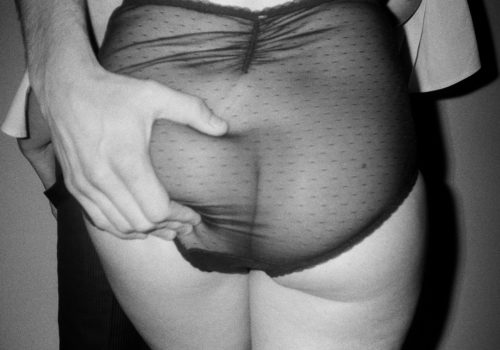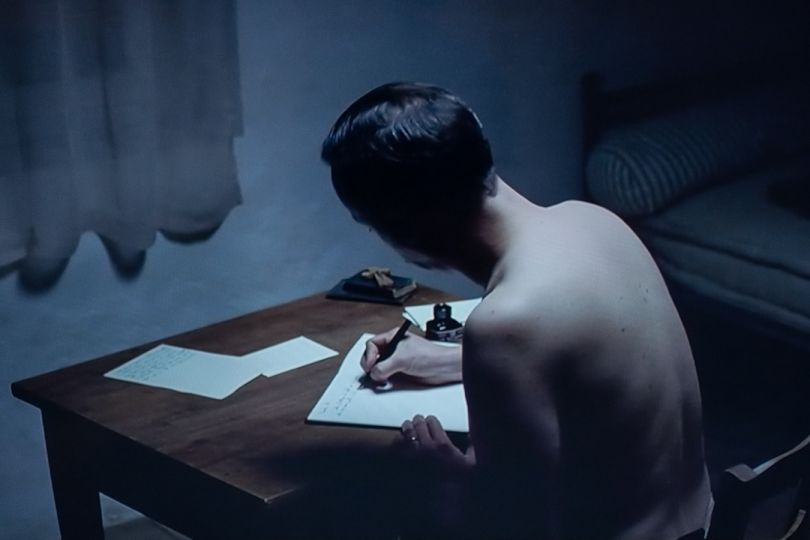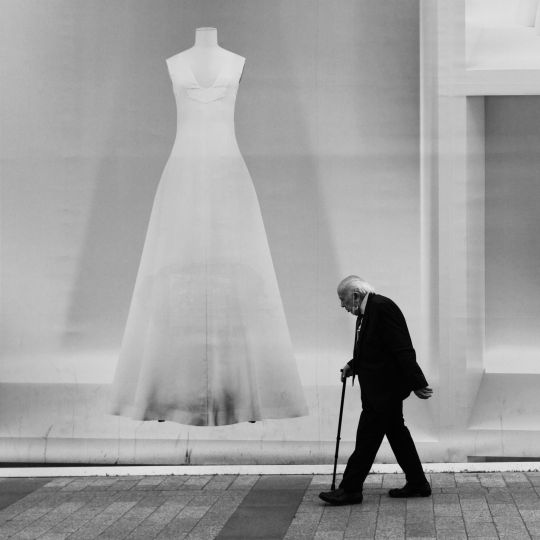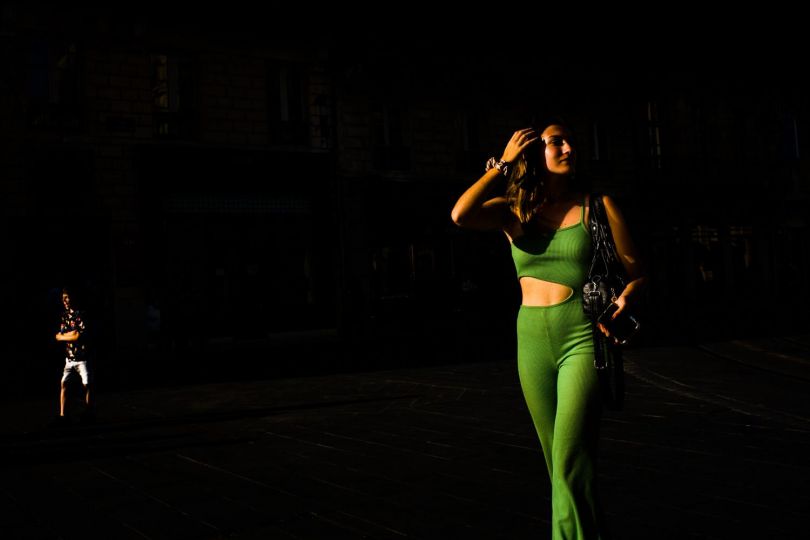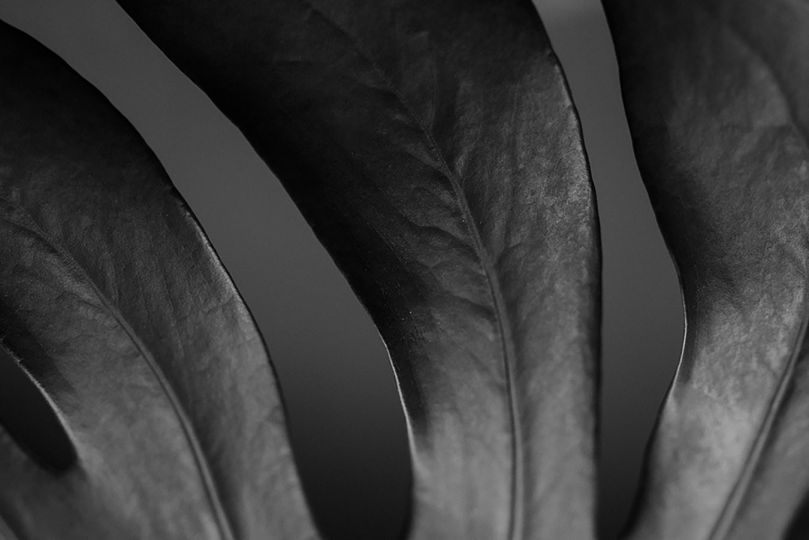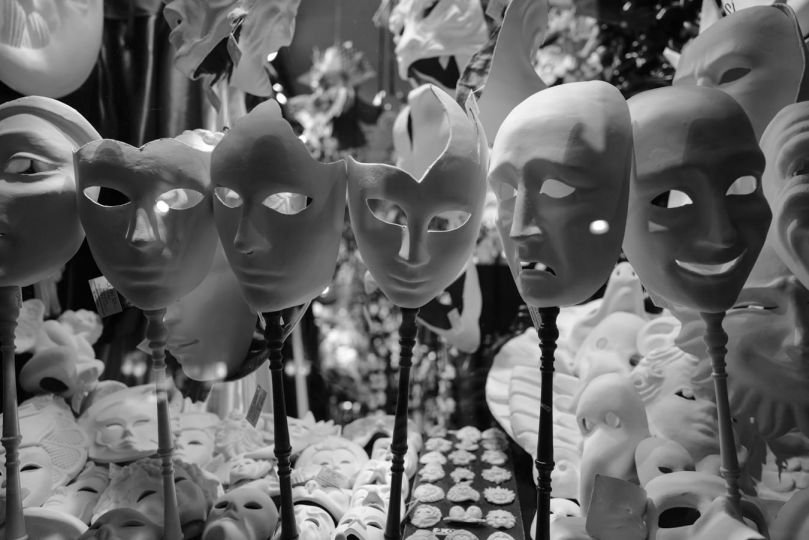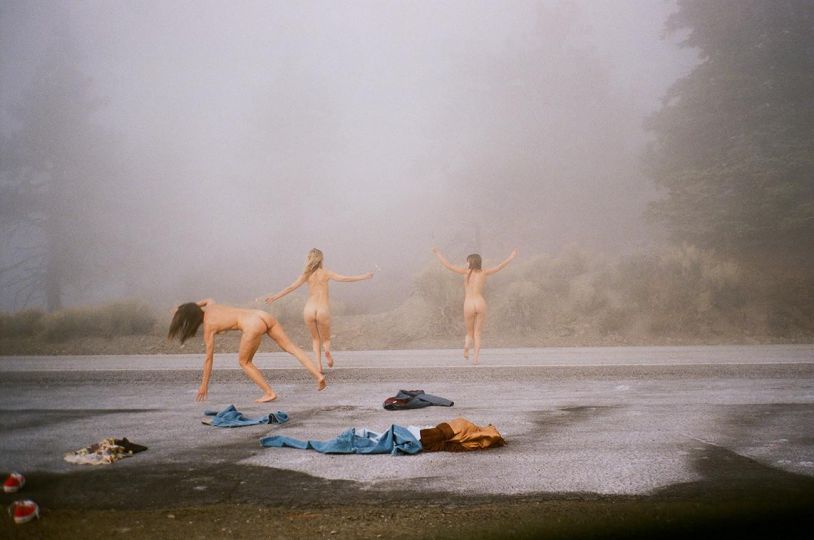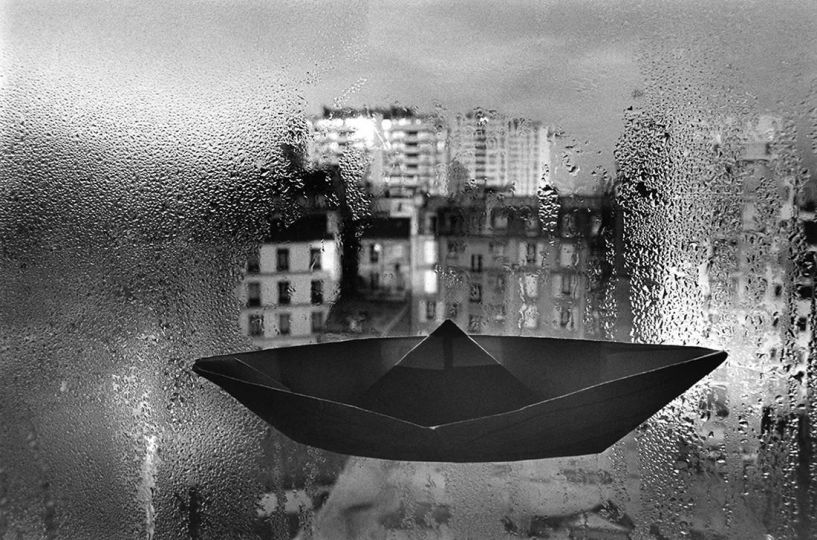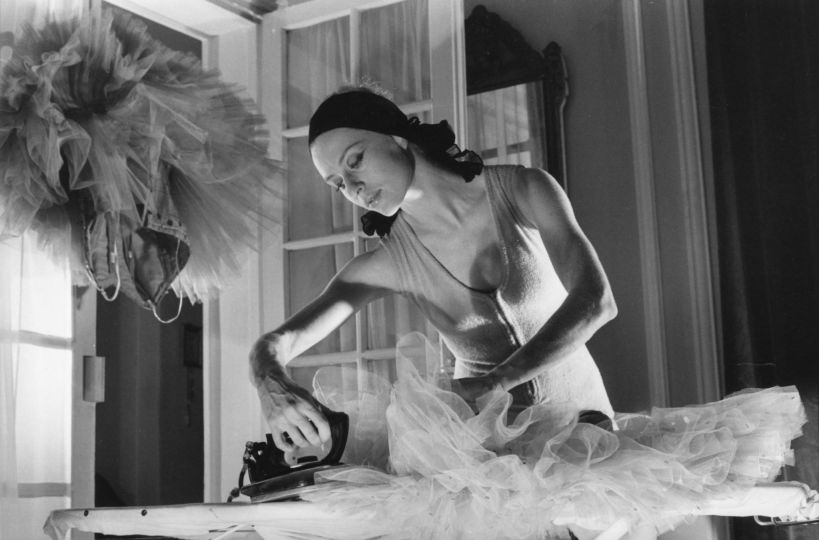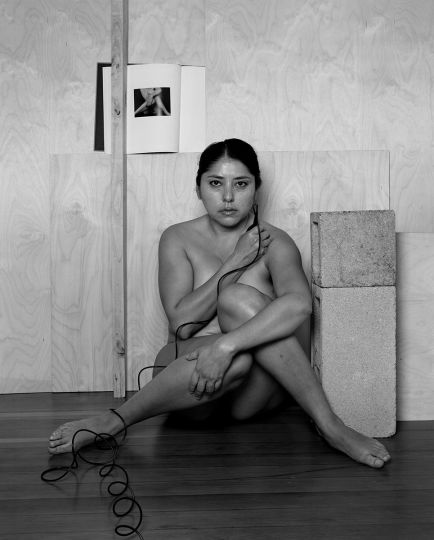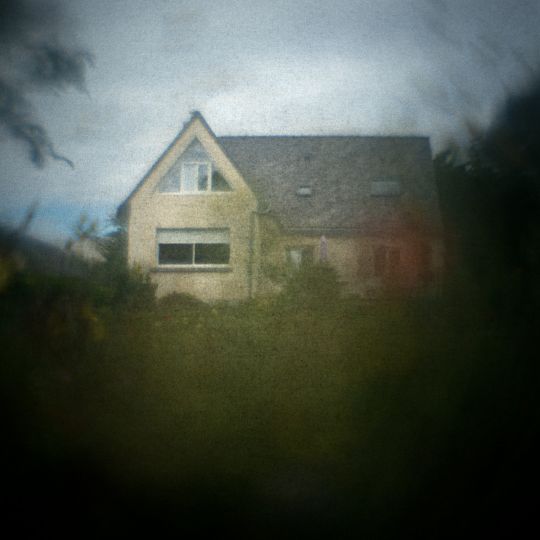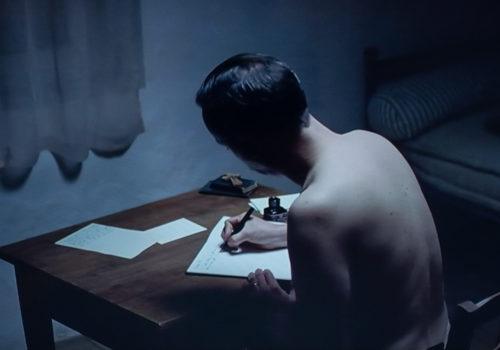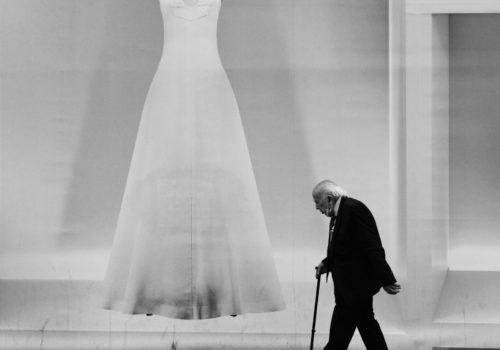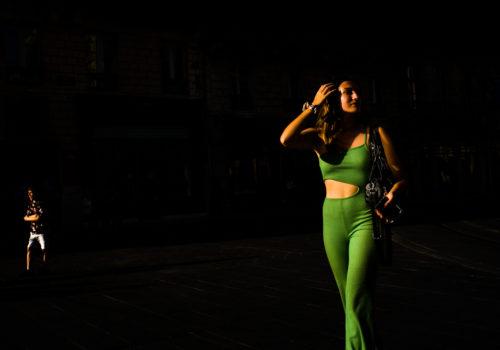“If your father saw you?” ”
Everything that is absurd in the sentence. Your father, me, you, we see it all. Permanently. Nothing escapes us on the web of networks. A canvas, or rather the curtain of a stage without a fourth wall.
On these altars of narcissistic worship, we sacrifice the worst banalities of our daily life. What can remain, then, of our privacy? What can be left of the “other”? We see everything, but don’t watch anything.
In this festival of staging, Mathilde is on the lookout for rare true moments. A relationship that is born and that dies immediately in the twilight of messy apartments.
Mathilde, what will you find? What if your dad saw you on these wild safaris? When you search for humanity in the canopy of the cities, this endangered species, what do you think he would say?
Philippe Benoit
Preface by Florent Barnadès
What remains of the intimate today? With the digitization of images and their interactions, it cannot be said that there is much to hide from ourselves since the start of the third millennium. So what is Mathilde Biron looking for in this intimate in distress? What is the purpose of her quest? One day, while we were chatting she and I (on an app, of course, 21st century obliges), she used the expression “digital privacy”. In the silence of the night (we often discuss late), I turn over this curious assemblage of concept. In her first book, she materialized it by illustrating her photos with explicit messages she had received. But I never really thought about what that could mean.
I learned, when the Internet was in its infancy, that you can draw three circles around a human being: the public, the private and the intimate. The latter is the smallest and is only accessible to very few people. It concerns what is the most precious, the most secret of ourselves: our nudity (sexualized or in our daily-routine), our deep emotions, our desires. This is the place where social masks fall. To access it, there are only two paths: to be “chosen” by the person to enter this circle, or Art. Literature and the Fine Arts are the means to experience a different intimacy: built or real, this area smells of sulfur. I am thinking of Anaïs Nin’s diary or even of Catherine M.’s sex life and of course nude photography (well more precisely when photographers stopped copying painting with staging of an unsurpassable kitsch) . Man Ray and Cartier Bresson were the forerunners of this photo, which was both aesthetic and intimate, thanks to their respective muses (and there were many of them). It was not about producing naughty postcards sold under wraps in shady establishments in Pigalle. The goal was to create a complex emotion: to be seized by the Beauty of a real body, with its imperfections, to feel moved and attracted by this unveiled intimacy and at the same time to give birth to desire or even lust. , that is to say, mingling your intimate with an unknown intimate, desire and emotion combined. Roland Barthes wrote: “The erotic photo, […] does not make sex a central object; she may well not show it; it draws the viewer out of the frame, and that’s what this photo, I animate it and it animates me. “
“The digital intimacy” fails to do this. Because what belongs to digital technology is cold. Despite everything, the screen remains an impassable surface where heat, texture or emotion do not pass. “A photograph should be wet,” Araki wrote. A nude photograph is appreciated when it is on a wall or in a book. Mathilde Biron offers you a sensitive experience here. The photos in this collection are delicately warm. The beings who offer you to discover their intimacy here, you will be able to meet them every day. It’s a mischievous and cheeky invitation. Because they do not seek to respond to the canons of our time. They would even take the pleasure of manhandling them that would not be surprising. The photographer is complicit in this impertinence. Because she too lives in these pages, with her body and her gaze. Like the traveler transformed by her wandering, she walks alongside those she photographs. It is not outside of this body cohort. And she takes us with her. With polaroids and film cameras that belong to a past that seems distant, she captures the truth of her models much better than electronic boxes. It breaks the digital surface to document our reality by making it a reality, and thus touches us. She offers us an exposed, proclaimed and asserted intimacy (delicious paradox). Thanks to her eye and her personality which succeed in removing the masks, Mathilde revives the truth of the intimate. And it is beautiful, warm and intoxicating.
Florent Barnadès
Mathilde Biron : Si ton père te voyait
Les Presses Littéraires, 2020
ISBN 9791031010410
122 pages
20 Euros
https://www.lespresseslitteraires.com/biron-mathilde/

